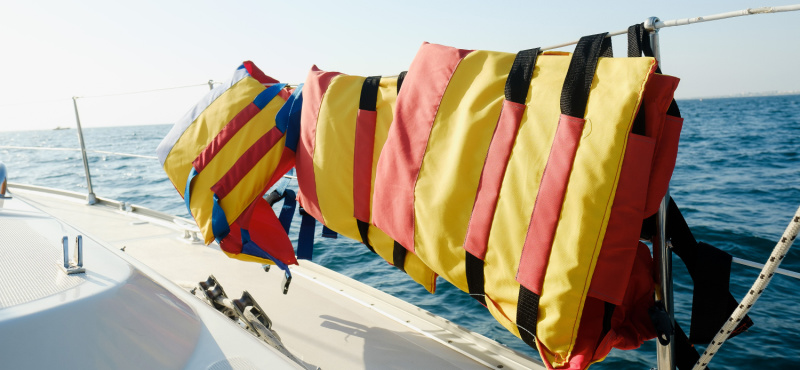Embarking on a yacht journey is undoubtedly an exhilarating experience, offering the opportunity to embrace the open waters and bask in the serenity of the sea. Whether you are a seasoned sailor or a novice yacht owner, ensuring the safety of your vessel and everyone on board should always be paramount.
The allure of the ocean should never overshadow the importance of comprehensive safety measures. With this in mind, we present a comprehensive guide to sailing safety, tailored specifically for yacht owners aiming to navigate the waters with confidence. From essential equipment checks to understanding weather patterns and emergency protocols, this guide will equip you with the knowledge and tools necessary to ensure a secure and enjoyable sailing adventure.
- Check Weather Conditions
Before setting sail, always check the weather forecast and be aware of any potential storms or rough conditions. Unpredictable or adverse weather can pose significant risks to the safety of the crew and the yacht. Awareness of upcoming weather patterns can help you chart a course that avoids potential hazards and minimizes exposure to rough waters, making your trips that much more enjoyable for you and those onboard.
- Inspect Yacht Regularly
By conducting frequent checks, you’d have a better chance of spotting minor issues before they escalate into more significant and costly problems. Regular inspections, combined with timely maintenance and repairs, contribute to extending the overall lifespan of the yacht.
- Maintain Safety Equipment
Properly maintained safety equipment, including life jackets, first aid kits, fire extinguishers, and distress signals, ensures that the yacht is well-prepared to handle any unforeseen emergencies or accidents that may arise during the voyage.
- Plan Your Route
Plan your route ahead of time, considering potential hazards and navigational challenges. Familiarize yourself with the area, including shallow waters, reefs, and any restricted zones before you set sail, especially if you are planning a longer trip with family or friends.
- Communication Systems
Effective communication systems, such as VHF radios, satellite phones, and EPIRBs (Emergency Position Indicating Radio Beacons), are vital for initiating timely emergency responses in case of accidents, medical emergencies, or unforeseen challenges at sea. Having at least one of these modes of communication is a must for yacht owners.
- Stay Informed
One of the best ways to ensure your peace of mind when you are on the waters is to prepare ahead of time. Keep yourself updated on local maritime regulations, including navigation rules, emergency procedures, and any changes in the waterway.
- Practice Man Overboard Drills
Practicing man overboard drills is of utmost importance for yacht owners, as it is a critical safety measure that can potentially save lives in the event of an emergency at sea. Familiarize your crew with man-overboard drills to ensure everyone knows what to do in case someone falls into the water.
- Know Basic Navigation
Even with modern navigation equipment, it’s crucial to have a basic understanding of traditional navigation techniques, such as reading nautical charts, using a compass, and understanding tides and currents. Besides being a handy tool that can help you navigate the waters with confidence, learning these systems can be an interesting and fun venture.
Join a Yacht Club
Of all things true, one of the best ways to enhance your yachting experience is to join a yacht club. Whether you are looking for a state-of-the-art marina to park your vessel, a like-minded community of yacht enthusiasts, or a place to lay back and enjoy your day with friends and family, Lighthouse Point Yacht Club brings it all in one place. To learn more about our club, membership benefits, and other services, contact us today!

